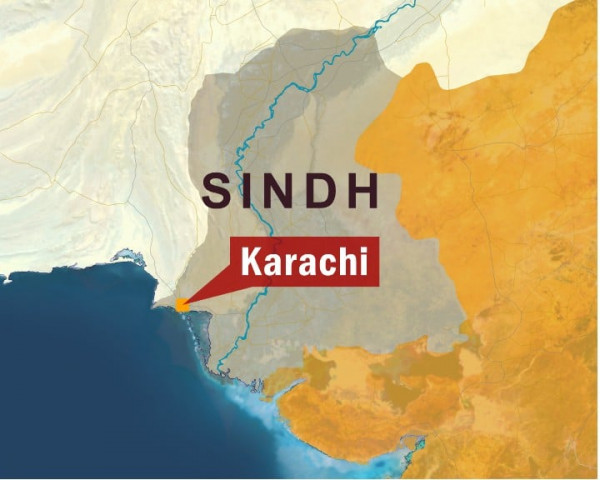Health workers play the blame game
More than 500 children in camps are suffering from skin diseases while 1,000 children were diagnosed with diarrhoea.

In their meetings with health officials, camp managers were told that the government had made “all arrangements” for IDPs. Managers, however, begged to differ.
“We have requested the EDO health to provide us with medicines and insect repellents, but to no avail,” said Mushtaq Sheikh, a social worker and tent village manager in Thehri.
The health department has failed to provide treatment to the IDPs and relies upon NGOs for back-up, people at relief camps revealed.
Despite its capacity to cater to 500 patents on a daily basis, the Civil Hospital Khairpur (CHK) has been receiving around 1,500 patients a day. Many of the IDPs are being treated in the hospital’s corridors as beds are difficult to find.
CHK civil surgeon Dr Aijaz said, however, that it would not be wrong on the hospital’s part to seek help from NGOs or philanthropists as it is severely handicapped in handling the large number of patients it is now receiving.
“We have a specified budget and facilities at this hospital. We are unable to deal with this catastrophe,” he added.
Among the organisations that are helping the health department are the Pakistan Primary Health Initiative (PPHI), National Family Planning Program, Red Crescent Society, International Rescue Committee and the Gambat Medcial Institute while a team of doctors from Turkey have also contributed to the department.
“We step in at the point when the health department fails to address the people’s needs,” said PPHI district incharge Mushtaq Sodhro, who was on the belief that the NGOs were doing most of the work while the health department was taking all the credit.
However, officials from the health department said that this was an exaggeration.
“We are providing medicines to the IDPs and are also collecting data. NGO and philanthropists are not faced with the kind of challenges we face. They have helped us but the bulk of the work is carried out by us,” said the health deaprtment’s Dr Agha Sami.
A clerk working at the health department claimed, however, that the health department was not as short on medical supplies as it claims to be. It has received so much in terms of procurement and equipment that it can cater to 50,000 IDPs in a month, he said, adding that, “We usually maintain a policy that we have run out of stock but the fact is that we have enough material, medicines and facilities. Moreover, IDPs who approach our local leadership also get special benefits.”
However, the health department maintained that it was struggling to make ends meet.
It was revealed that the Lady Willington Hospital’s health administration was unable to arrange for blood in several deliveries. Four women lost their lives at the time of delivery because on an unavailability of blood, doctors complained.
“We have requested hospitals, blood banks and laboratories to supply us with blood, but we did not get any response,” claimed EDO revenue Umer Farooq Bullo. He said that it was the role of the civil society to come forward and help the government, which was already under “a lot of pressure”.
Published in The Express Tribune, September 3rd, 2010.



















COMMENTS
Comments are moderated and generally will be posted if they are on-topic and not abusive.
For more information, please see our Comments FAQ